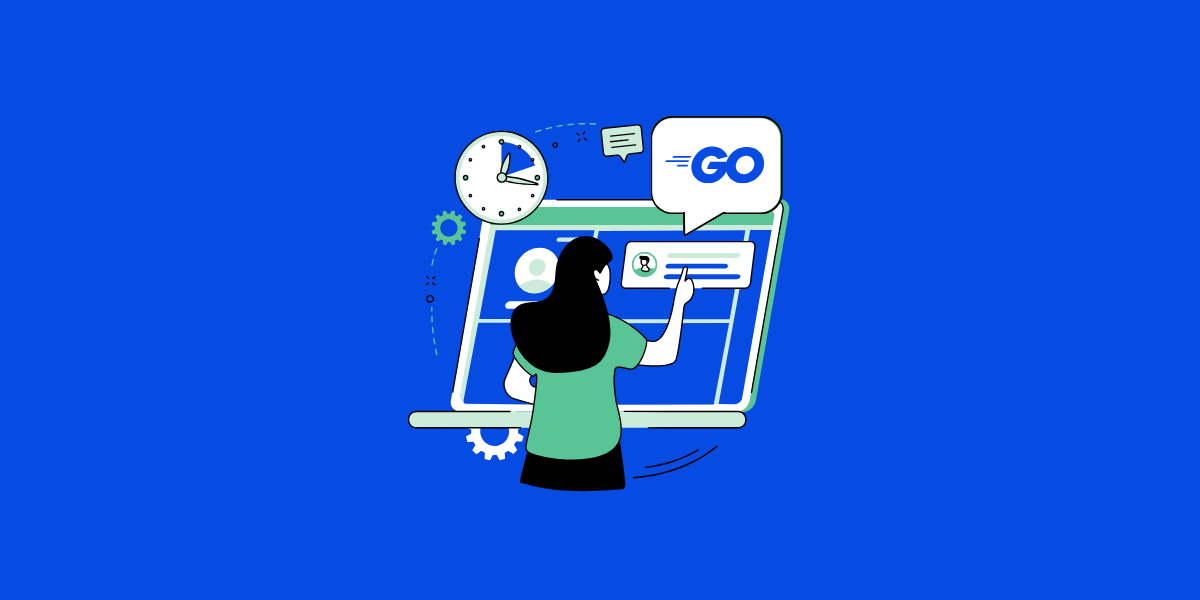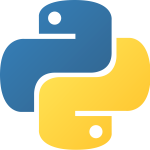Hire remote Golang developers that you can trust
Hire Golang developers from a unique network of 50,000+ pre-vetted offshore talents from Europe and Latin America, looking for a full-time contract. YouTeam developers stand apart for their ability to think like product managers and act like software architects. We also manage everything, so there’s zero overhead for your company.
Hire developers109 best Golang developers for hire on YouTeam in December 2024

Alfio
Project Manager
Muhamed
Senior Back-End Developer
Artem
Full-Stack Developer
Adolfo
Senior Full-Stack Engineer
Román
Full-Stack Developer
Adolfo
Software Engineer
Nelson
Software Developer
Alexandre
Software Developer
Samuel
Golang Developer
Anar
Software DeveloperStart hiring to
see all talent
Hire
developers

Best Developer
Software DeveloperTrusted by Fortune 500 companies and Y Combinator startups
Why hire Golang developers with YouTeam
 48-hour personalized matching
YouTeam handpicks the best-matched candidates.
48-hour personalized matching
YouTeam handpicks the best-matched candidates.
 Zero overhead
Locally-compliant contracts and billing
Zero overhead
Locally-compliant contracts and billing
 Dedicated white-glove support
Dedicated white-glove support






How to hire Golang developers with YouTeam
Share your requirements Set up a quick call with one of our Matching Experts — your dedicated contact at YouTeam.
Undergo Personalized Matching Your Matching Expert curates a candidate list, conducts pre-interviews, and ensures a perfect match for your needs—covering developers' skills, tech stack preferences, interests, and personality.
Meet the right candidates Review a list of candidates screened specifically for your request and pick the best for the interview stage. Average interview-to-hire ratio on YouTeam platforms: 1.75.
Hire and work with confidence YouTeam automates contract signing and invoicing through its secure system. Your dedicated Matching Expert stays with you throughout the collaboration with contractors.

Find developers skilled in related technology
More technologiesRead about Golang on our blog
 Everything You Need to Know before Hiring a Golang Developer in 2024
Everything You Need to Know before Hiring a Golang Developer in 2024
Artem Vasin
 DevOps Engineer Hiring Guide 2024: Everything You Need to Know
DevOps Engineer Hiring Guide 2024: Everything You Need to Know
Artem Vasin
About Golang
- What is Golang?
- Key features of Golang
- What is Golang used for?
- Essential tools for Golang developers
- What is the role of a Golang developer?
- Golang developer experience levels
- Tasks and responsibilities of Golang developers
- Skills to look for in a Golang developer
- Types of Golang developers: freelancers, in-house engineers, or outsourced developers
- How to write a Golang developer job description?
- Hiring Golang developers: hard skills assessment questions
Golang, commonly referred to as Go, is an open-source programming language developed by Google that was first released in 2009. Go is known for its simplicity, performance, and strong support for concurrent programming, making it an excellent choice for building applications across various domains, from web services to cloud infrastructure.
1. Simplicity: Go has a clean and concise syntax that is easy to read and understand, making it accessible to new developers while still powerful enough for experienced programmers.
2. Performance: Go is a compiled language, which means that code is translated directly into machine code, resulting in fast execution times comparable to C or C++. Its efficient memory management also contributes to high performance.
3. Concurrency: One of Go’s standout features is its built-in support for concurrent programming through goroutines and channels. Goroutines are lightweight threads managed by the Go runtime, allowing developers to run functions asynchronously. Channels enable communication between goroutines, simplifying the complexity of concurrent programming.
4. Garbage Collection: Go includes a garbage collector that automatically manages memory, helping to prevent memory leaks and other memory-related issues.
5. Static Typing and Efficiency: Go is statically typed, meaning variable types are checked at compile time. This helps catch errors early and improves performance. The type system is designed to be straightforward, which enhances the speed of development.
6. Rich Standard Library: Go comes with a comprehensive standard library that provides a wide range of functionalities, including support for web servers, encryption, and handling various data formats (like JSON).
7. Cross-Platform: Go programs can be easily compiled to run on different operating systems, including Windows, macOS, and various Linux distributions, which enhances portability.
8. Tooling: Go has excellent tooling support, including built-in documentation generation (godoc), formatting tools (gofmt), and package management, which streamline the development process.
Here are some of the primary use cases for Go:
1. Web Development
Go is often employed to build web applications and services. Its built-in support for HTTP servers and routing, combined with a rich standard library, makes it an ideal choice for creating RESTful APIs and web frameworks. Popular frameworks like Gin and Echo enhance Go’s web development capabilities, enabling developers to create high-performance web applications quickly.
2. Microservices Architecture
Go is a preferred language for developing microservices due to its lightweight nature and ability to handle multiple concurrent processes efficiently. With features like goroutines and channels, Go allows developers to build scalable, distributed systems that can manage a large number of requests simultaneously, making it suitable for cloud-native applications.
3. Cloud Computing and DevOps Tools
Go is widely used in the cloud computing space and for building DevOps tools. Many popular cloud platforms and container orchestration tools, such as Kubernetes and Docker, are written in Go. Its efficiency and ability to compile to a single binary make it an excellent choice for creating reliable cloud applications and command-line interfaces.
4. Networking Applications
With its strong support for concurrent programming and networking libraries, Go is an excellent choice for developing networking tools and applications. Go is often used to build proxies, load balancers, and other network utilities that require high performance and reliability.
5. Data Processing and ETL Pipelines
Go’s performance capabilities make it suitable for data processing tasks. It is often used to create Extract, Transform, Load (ETL) pipelines, data aggregation tools, and analytics applications, allowing organizations to handle large volumes of data efficiently.
6. Command-Line Tools
Go’s simplicity and ability to compile to a single executable binary make it ideal for building command-line applications. Developers can create robust tools for automation, system administration, and task management, which can run on various operating systems without requiring external dependencies.
7. Game Development
Although not as common as other languages, Go is also used in game development. Its performance and ability to handle concurrency allow developers to create game servers and lightweight games, particularly those that require real-time interactions.
Here are the essential tools for Go that enhance productivity and code quality:
1. Go Tools (Go CLI): The command-line interface for managing Go code, including commands like go build, go test, and go get.
2. IDEs and Editors:
- Visual Studio Code: A popular editor with Go extensions that provide features like IntelliSense and debugging.
- GoLand: A powerful IDE specifically designed for Go development with advanced features.
- Sublime Text and Atom: Lightweight editors customizable with Go plugins.
3. Package Management:
- Go Modules: Built-in dependency management introduced in Go 1.11, simplifying package imports and versioning.
- Dep: A legacy dependency management tool still used in some projects.
4. Testing and Benchmarking:
- Go Testing Framework: Built-in support for unit tests and integration tests.
- Testify: A toolkit that provides convenient assertions and mocks.
- Ginkgo and Gomega: BDD testing frameworks for expressive and readable tests.
5. Static Analysis and Linting:
- Golangci-lint: Aggregates multiple linters into one tool for code quality checks.
- Go Vet: Checks for common mistakes in Go code and can be run with go vet.
6. Profiling and Performance Analysis:
- pprof: A profiling tool for analyzing CPU and memory usage to identify bottlenecks.
- Go Trace: Provides detailed tracing of program execution for performance insights.
7. Documentation Tools:
- Godoc: Generates documentation from comments in the code.
- Swagger: Used for documenting and visualizing API endpoints.
8. Containerization and Deployment:
- Docker: Ideal for containerizing Go applications for portability.
- Kubernetes: Manages containerized applications at scale, especially in microservices architectures.
A Golang developer is responsible for designing, building, and maintaining software applications using the Go programming language. They write clean and efficient code, develop and manage RESTful APIs or gRPC services, and utilize Go’s concurrency features to optimize performance. Additionally, they implement testing and debugging practices to ensure code quality, collaborate with cross-functional teams to deliver cohesive software solutions, and maintain clear documentation for their code and APIs.
Here are the common experience levels for Golang developers:
1. Junior Golang Developer
- Experience: 0-2 years
- Responsibilities: Junior developers are often new to Go or software development in general. They typically assist in writing code, fixing bugs, and testing applications under the guidance of more experienced developers. Their focus is on learning the language and familiarizing themselves with development practices and tools.
- Skills: Basic understanding of Go syntax, foundational programming concepts, and familiarity with version control systems like Git.
2.Mid-Level Golang Developer
- Experience: 2-5 years
- Responsibilities: Mid-level developers have a solid understanding of Go and software development principles. They work more independently, taking on significant parts of projects, writing and reviewing code, and contributing to architecture and design discussions. They may also mentor junior developers.
- Skills: Proficient in Go programming, experience with API development, understanding of concurrency patterns, and familiarity with testing frameworks and best practices.
3. Senior Golang Developer
- Experience: 5+ years
- Responsibilities: Senior developers lead projects and teams, making architectural decisions and ensuring best practices are followed. They are responsible for code quality, performance optimization, and mentoring junior and mid-level developers. They often engage in cross-team collaboration to align project goals with business objectives.
- Skills: Expertise in Go and software architecture, strong problem-solving skills, experience with microservices and cloud-native development, and proficiency in performance tuning and debugging.
4. Lead Golang Developer / Architect
- Experience: 7+ years
- Responsibilities: Lead developers or architects design and oversee the overall architecture of large-scale applications. They define technical strategies, set coding standards, and ensure that the development team adheres to them. They also work closely with stakeholders to align technical solutions with business needs.
- Skills: Deep understanding of system design, experience in scalable architectures, leadership skills, and the ability to evaluate and implement new technologies.
Responsibilities of Go developers extend beyond traditional coding to encompass a range of tasks that capitalize on Go’s unique features. These include:
1. Writing and Maintaining Code: Developing clean, efficient, and maintainable code, implementing new features, fixing bugs, and refactoring existing code.
2. API Development: Designing and managing RESTful APIs or gRPC services to enable communication between application components.
3. Testing and Debugging: Implementing unit and integration tests, debugging applications, and ensuring software meets quality standards.
4. Concurrency Management: Utilizing Go’s concurrency features, such as goroutines and channels, to optimize application performance.
5. Collaboration: Working with cross-functional teams, including frontend developers and product managers, to ensure project alignment with business goals.
6. Performance Optimization: Analyzing application performance, identifying bottlenecks, and implementing optimizations for speed and scalability.
7. Code Review and Maintenance: Participating in code reviews to ensure quality and maintaining existing codebases to address technical debt.
8. Documentation: Creating and maintaining clear documentation for code and APIs to facilitate collaboration and onboarding.
Given Go’s emphasis on simplicity, efficiency, and concurrency, the ideal candidate should demonstrate a robust understanding of these principles and how to apply them in real-world scenarios. Here are key skills to consider:
1. Proficiency in Go Programming
A strong understanding of Go syntax, features, and best practices is fundamental. Look for experience with Go’s unique capabilities, such as goroutines, channels, and the standard library.
2. API Development Skills
Experience in designing and building RESTful APIs or gRPC services is crucial. Developers should be familiar with API documentation tools and principles, ensuring robust and user-friendly interfaces.
3. Concurrency and Parallelism
Golang developers should have a solid grasp of concurrency concepts and how to implement them effectively using goroutines and channels to manage tasks efficiently.
4. Testing and Debugging Proficiency
Look for skills in writing unit and integration tests, using testing frameworks, and debugging techniques. A good developer should prioritize code quality and reliability through comprehensive testing.
5. Familiarity with Databases
Experience with SQL and NoSQL databases, as well as ORM (Object-Relational Mapping) tools, is important for handling data storage and retrieval in applications.
6. Understanding of Microservices Architecture
Knowledge of microservices principles and the ability to design and implement scalable, distributed systems is valuable, especially for modern application development.
7. Version Control Systems
Proficiency in using version control systems, particularly Git, is essential for collaborative development and maintaining codebases effectively.
8. Problem-Solving Skills
Strong analytical and problem-solving abilities are crucial for identifying issues and developing efficient solutions, particularly in complex system architectures.
9. Collaboration and Communication Skills
Golang developers often work in cross-functional teams, so effective communication and collaboration skills are important for ensuring project alignment and success.
When looking to hire Golang developers for your project, there are three main types to consider: freelancers, in-house engineers, and outsourced developers.
Freelance Golang Developers
Freelancers are ideal for companies with small budgets or short-term projects. They offer flexibility but can be unreliable, as they often handle multiple projects simultaneously and may not be fully committed to yours. Additionally, finding skilled Golang developers with the right technical expertise can be challenging, as many talented developers are employed by software development companies. Freelancers typically don’t sign long-term contracts, which makes it hard to guarantee project success.
In-House Golang Developers
If you’re in the core development process, hiring dedicated Golang developers in-house is a solid option. These developers are more engaged and committed to the project’s goals. In-house engineers often contribute beyond coding, providing ideas for improving the product and its overall code quality. However, this option is more expensive, requiring investment in technologies, tools, and other operational costs. Still, it ensures you have a highly skilled development team working full-time on your project.
Outsourced Golang Developers
Outsourcing provides a cost-effective way to hire Golang developers. There are two approaches to consider:
- Hire a dedicated team consisting of developers, QA, and project managers to handle the entire software project.
- Supplement your in-house team with additional remote Golang developers to assist during specific stages of development.
The benefit of outsourcing is that you only pay for the work performed, without the additional overhead of maintaining a full-time team. This approach is ideal if you need experienced Golang developers or a dedicated Golang development team to manage the complexities of your project without long-term commitments.
By following these points, you can create a clear and compelling job description that attracts qualified Golang developers:
1. Job Title: Clearly state the position as “Golang Developer” or “Go Developer” to attract the right candidates.
2. Job Summary: Provide a brief overview of the role, including its importance to the team and organization. Mention key projects or technologies the developer will work with.
3. Key Responsibilities: List primary tasks such as:
- Designing and implementing scalable applications using Go.
- Developing and managing RESTful APIs or gRPC services.
- Writing unit and integration tests to ensure code quality.
- Collaborating with cross-functional teams to deliver projects.
4. Required Skills: Specify essential technical skills, including:
- Proficiency in Go programming.
- Experience with concurrency patterns and goroutines.
- Familiarity with database management (SQL/NoSQL).
- Knowledge of API development and testing frameworks.
5. Qualifications: Outline educational and experience requirements, such as:
- A degree in Computer Science or a related field.
- X years of experience in software development, specifically with Go.
6. Soft Skills: Highlight important interpersonal skills, such as problem-solving, communication, and teamwork, which are vital for collaboration within the team.
7. Benefits and Work Environment: Briefly describe the company culture, work environment (remote or in-office), and any benefits offered, such as flexible hours, professional development opportunities, or health benefits.
Here are some hard skills assessment questions specifically designed for experienced Golang developers:
1. Can you explain the difference between a slice and an array in Go? How would you use them in a project?
Tests understanding of core Go data structures and memory management.
2. How do goroutines work in Go, and how do they differ from traditional threads? Can you provide an example of when you would use a goroutine?
Assesses knowledge of Go’s concurrency model and practical application.
3. How does error handling in Go differ from exception handling in other programming languages? Can you provide an example of how you would handle errors in a function?
Evaluates understanding of Go’s error handling approach and its implications for robustness.
4. Describe how you would design a RESTful API in Go. What libraries or frameworks would you use, and why?
Gauges experience with API design and knowledge of relevant tools like Gorilla Mux or Gin.
5. Can you explain how to write and run tests in Go? What are some best practices you follow for testing your Go applications?
Assesses familiarity with Go’s testing framework and commitment to code quality.
6. How do you identify performance bottlenecks in a Go application? Can you describe a situation where you optimized a piece of code for better performance?
Evaluates problem-solving skills and experience with performance tuning.
7. What is Go modules, and how do you manage dependencies in your Go projects? Can you discuss any challenges you faced while using Go modules?
Tests understanding of dependency management and ability to navigate related issues.
8. Can you implement a binary search algorithm in Go? Explain the time complexity of your solution.
Assesses knowledge of algorithms and data structures, along with coding skills in Go.
FAQ about Hiring Golang developer
Why choose YouTeam to hire Golang developers?
YouTeam offers access to a highly qualified pool of Go developers, helping you scale your team quickly. Each developer is thoroughly vetted, ensuring their skills, experience, and reliability. With partnerships across 500+ development agencies and over 50,000 developers, you can receive qualified candidates within 48 hours, making it a fast and reliable solution for your hiring needs.
How does YouTeam vet Golang developers?
YouTeam follows a multi-stage vetting process. First, developers are sourced from trusted development agencies, ensuring they meet the necessary skill and experience requirements. Pre-screened candidates are then forwarded to clients for further interviews, allowing them to select the best fit based on specific project needs.
How much does it cost to hire the best Golang developers through YouTeam?
The cost of hiring Go developers on YouTeam varies based on factors like expertise, location, and skills. On average, a Go developer through YouTeam charges around $56 per hour, though rates can fluctuate depending on specific project requirements.
How quickly can you hire with YouTeam?
With YouTeam, you can hire developers faster than traditional methods. Here’s why:
1. Shortlist in 48 hours: Powered by our AI Matchmaker and human experts, we deliver a tailored shortlist of vetted candidates within just 48 hours.
2. Larger talent pool: As a marketplace, YouTeam offers access to a broader range of developers from hundreds of partner agencies, giving you more options than typical outsourcing agencies.
3. Seamless process: From the moment you request a call, our Matching Experts handle the rest, ensuring you quickly receive top-quality candidates who match your precise requirements.
With YouTeam, our clients have been able to build development teams within just a few weeks, not months.
What is the no-risk trial period for YouTeam developers?
• 1-Month Trial: You can terminate the engagement at any time during the first month.
• Free Replacements: If you’d like to replace a contractor, we’ll do it within two weeks, free of charge.
You can learn more by reading our Money-Back Guarantee.
How is YouTeam different from freelance portals for hiring Golang developers?
Unlike freelance platforms, YouTeam connects you with developers from trusted software development agencies, not freelancers. This ensures that developers have the necessary technical and soft skills, along with relevant experience. If a developer needs to be replaced unexpectedly, YouTeam can quickly provide a substitute of equal skill to avoid project delays.
How do Golang developer salaries differ, and why?
Golang developer salaries vary significantly based on geographical location, experience level, and industry demand. In the United States, average annual salaries for Golang developers range from $100,000 to $140,000, with experienced developers in tech hubs like San Francisco or New York earning upwards of $160,000. This premium is driven by high demand for Go expertise, particularly in sectors like finance and technology, alongside the elevated cost of living in these areas.
In Eastern Europe, Golang developers typically earn between $35,000 and $60,000 per year, reflecting the region’s lower living expenses and growing tech market. Similarly, in Latin America, salaries range from $30,000 to $50,000, making it an attractive option for companies seeking skilled developers at competitive rates. The lower costs in these regions often appeal to businesses looking to balance quality and budget.
Several factors contribute to these salary differences:
1. Location: Major tech hubs tend to offer higher salaries due to the increased demand for skilled developers and the higher cost of living.
2. Experience Level: Senior Golang developers with extensive experience can command significantly higher salaries compared to entry-level developers.
3. Industry: Industries such as finance and healthcare often pay a premium for developers who can create complex and reliable software solutions.
4. Skill Set and Specialization: Developers with expertise in cloud services, microservices architecture, and other complementary technologies can expect to earn more due to their added value.
5. Company Size and Reputation: Larger, established companies may offer higher salaries compared to startups, although startups may compensate with equity or flexible work arrangements.
Reviews
“It's just much more convenient to find a small team. I talk to one person, get 5 hand-picked CVs, interview candidates, hire the best ones – and I’m done!”
“Every time YouTeam sends me a list of potential developers, I am confident that I can interview pretty much anybody and they will be a good candidate.”
“The decision to use YouTeam was made by comparing them directly to the other candidates. As soon as I started talking to them, YouTeam adopted a hands-on approach. Time-wise, YouTeam also performed well.”
“We will definitely continue with them in the future. I’m so happy with their work that I’ve recommended them to my other company as well. There were no issues, it was really good. I gave a very loose brief, and the developer who worked for me had enough initiative to tighten it up by asking relevant questions. There was no messing around—it was done really well, with good, clean code.”
“YouTeam was very quick and responsive. I was presented with great candidates in just days, which was fantastic for me because we were looking to move fast. They had experience working on similar projects to exactly what we needed.”
“We wanted to boost our capacity for a period of six to twelve months. I decided to get a shot with YouTeam is that in any other place I can't say that I'm looking for a team of 5 developers with the possibility to scale. Now I returned to them again - this time for the confidence. If somebody is on the YouTube platform, you know that they've met a certain threshold of customer satisfaction, they've got a history of successful work elsewhere.”








